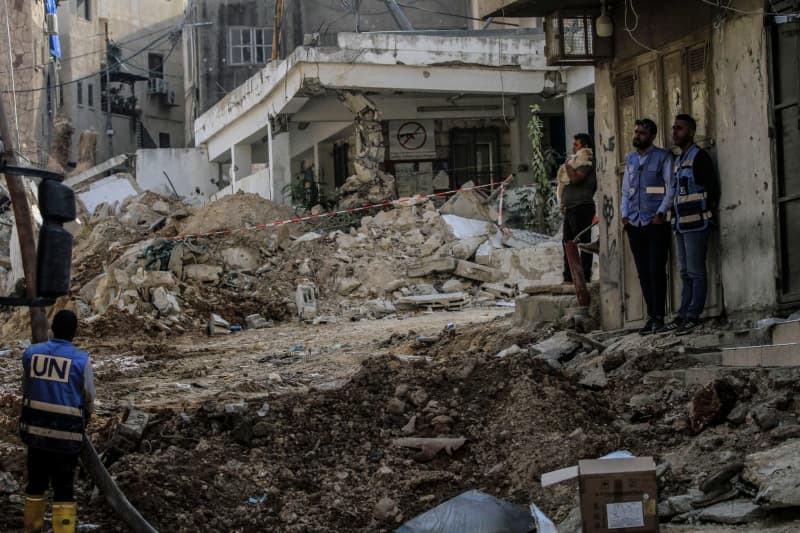Recent military actions have escalated tensions across the region as an Israeli airstrike in southern Lebanon resulted in the deaths of three individuals and injuries to several UN peacekeepers. According to statements made by the Lebanese Army, the attack targeted a checkpoint in Sidon, a southern city, and also injured three Lebanese soldiers. Additionally, the United Nations Interim Force in Lebanon (UNIFIL) reported that five of its Malaysian peacekeepers sustained light injuries during the incident. The UN mission has stressed the importance of safeguarding both peacekeepers and civilians, urging all parties involved to avoid engaging in actions that could result in collateral damage. In a response to the attack, the Israeli military confirmed its involvement and stated that it strives to minimize harm to innocent bystanders, noting that they are not targeting UN peacekeepers.
The violence in Lebanon is rooted in ongoing confrontations between Israeli forces and the Hezbollah militia, which have surged since late September. Israeli troops have allegedly targeted Hezbollah positions with machine gun fire, resulting in intense clashes around the Naqoura area and other villages. The Israel Defense Forces (IDF) have reported significant casualties among Hezbollah fighters, claiming to have killed approximately 60 members in the eastern Bekaa Valley. Videos from Beirut’s airport captured flights continuing to operate despite visible explosions from Israeli airstrikes, indicating a relentless military campaign. Concurrently, Hezbollah retaliated by launching numerous rockets into northern Israel, leading to air raid sirens in cities like Haifa. The ongoing exchange of fire has resulted in injuries on both sides, including an 85-year-old Israeli man hurt by shrapnel amid the conflict.
Further intensifying the situation, Israeli military operations in Gaza have seen considerable escalation, particularly in the northern regions. The IDF has expanded its focus on the Palestinian militant group Hamas, with recent operations targeting terrorist infrastructure in the Beit Lahia area and ongoing actions in the Jabalia region. The Israeli military has reported the elimination of approximately 50 militants over a 24-hour period during these engagements. While the IDF encourages residents to evacuate these combat zones, many have opted to remain, citing a lack of security in other areas and the perilous routes required for evacuation.
Amid these military operations, civilian casualties in Gaza are mounting, with reports indicating at least 12 deaths and around 30 injuries in the al-Shati refugee camp due to an Israeli strike on a former school used to house displaced individuals. Additional casualties have been reported in various locations throughout the Gaza Strip, with at least 10 people killed in central areas and further fatalities in Jabalia and Rafah. These tragic outcomes underline the severe ramifications of the ongoing conflict on the civilian population, which is enduring a humanitarian crisis described as catastrophic. The relentless violence has instigated widespread fears among residents, many of whom feel trapped by the hostilities, leading to a complex cycle of violence and suffering.
The international community continues to monitor these developments with growing concern. The involvement of UN peacekeepers, who are intended to help maintain stability and protect civilians, underscores the challenging dynamics of the situation. With each escalation of military action, the risks to non-combatants increase, prompting calls for urgent advocacy and humanitarian interventions. The UN has reiterated the necessity of protecting peacekeepers and civilians, emphasizing a need for restraint among parties engaged in the conflict.
As the fighting rages on, diplomatic solutions remain elusive, with both Israel and Hezbollah firmly entrenched in their positions. The latest events point to a deepening crisis that threatens regional stability and exacerbates an already dire humanitarian situation in Gaza and southern Lebanon. Continued violence not only results in immediate casualties but also sows long-term discord, hindering potential pathways to peace. The escalating confrontations highlight the urgent need for dialogue and de-escalation to mitigate further loss of life and foster a sustainable resolution to the protracted conflict.

